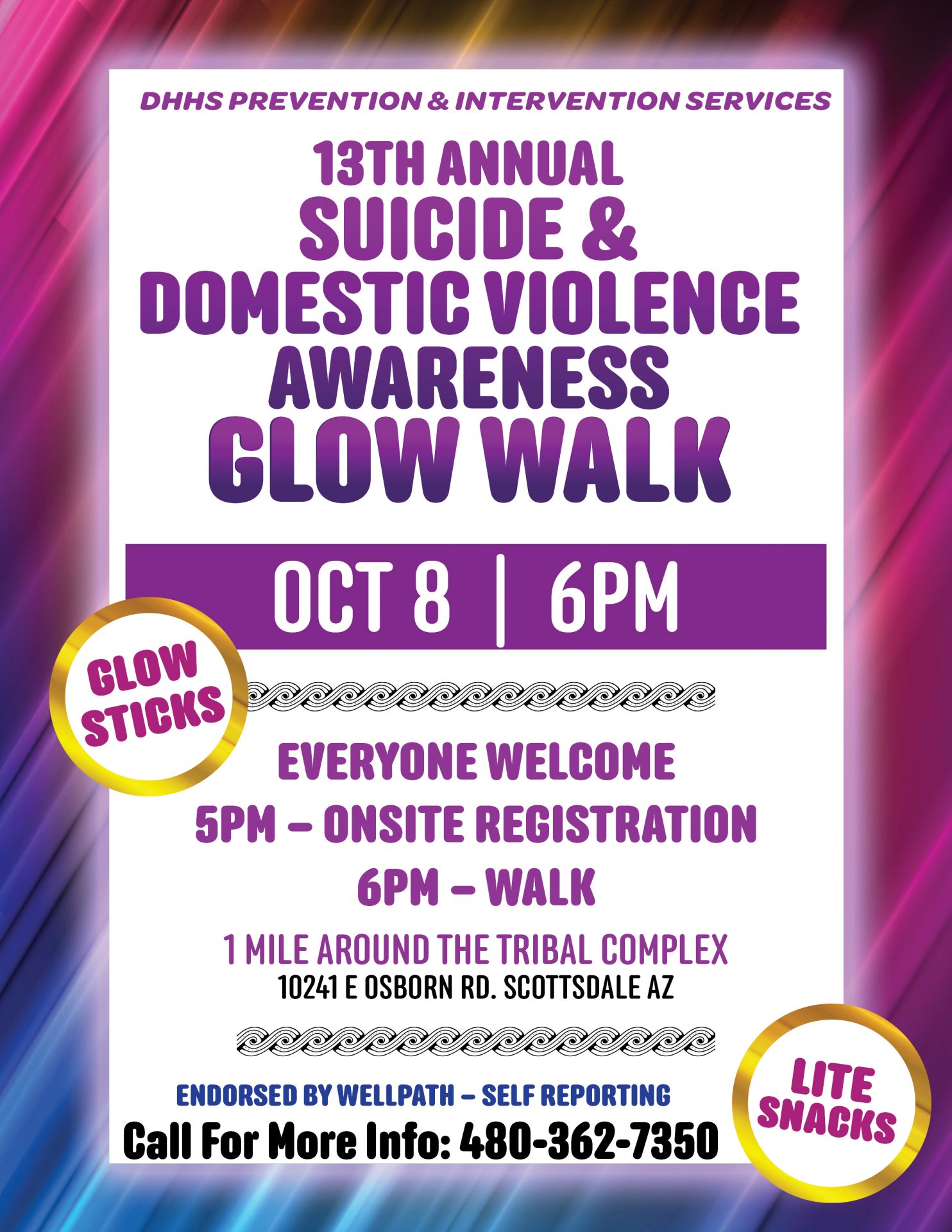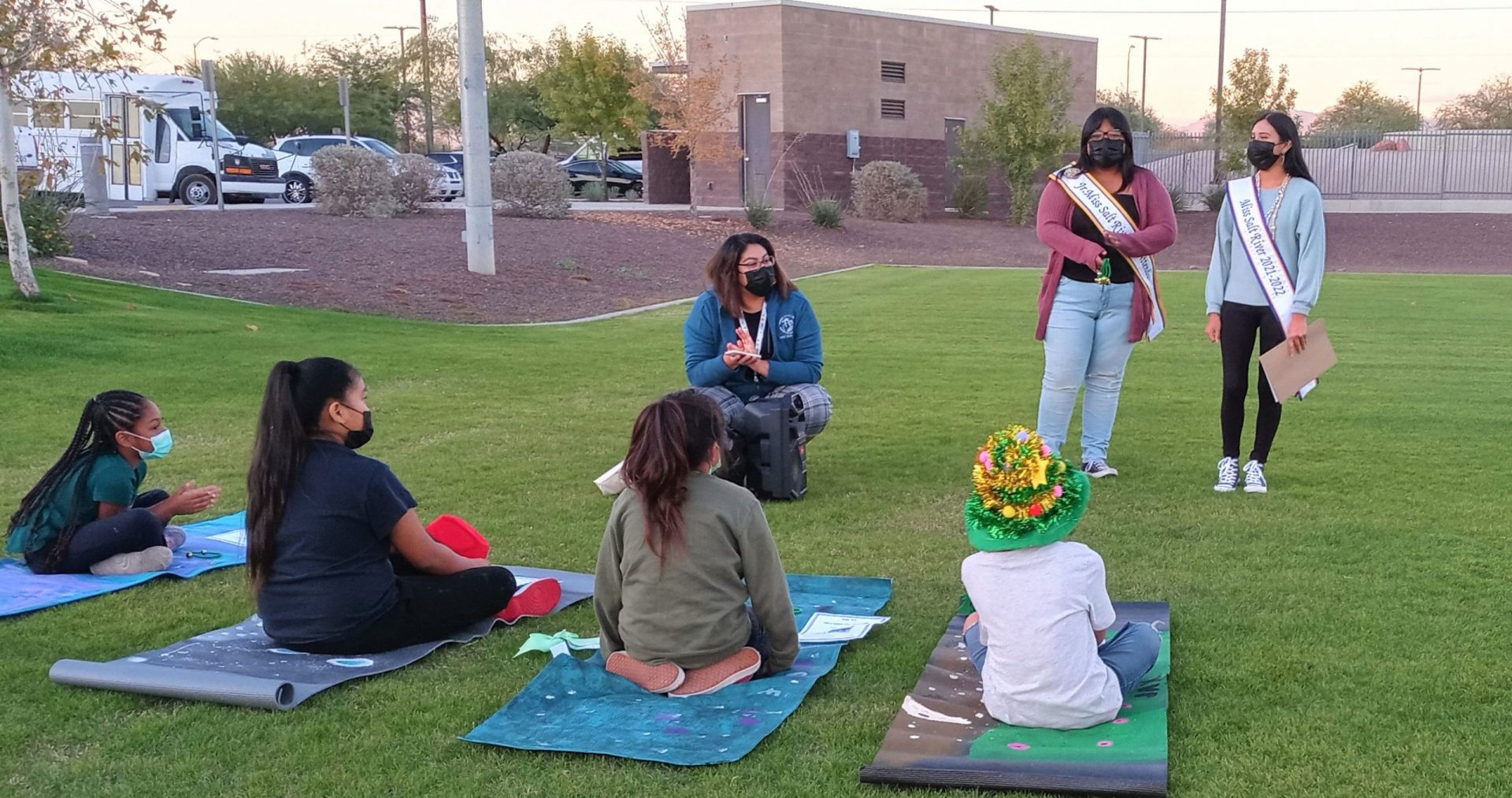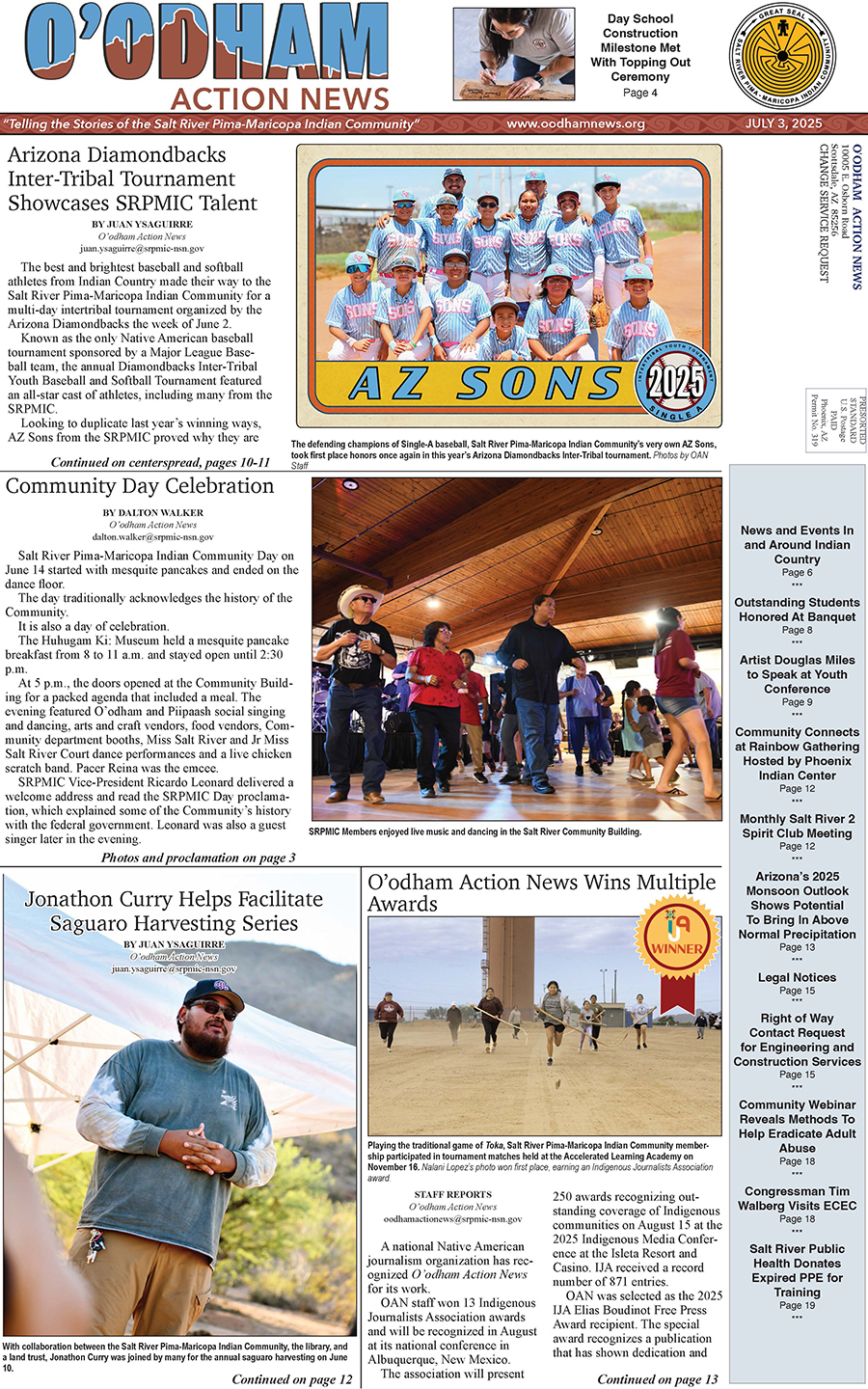VIEWS: 1208
February 12, 2024SRPMIC Educates on the Dangers of Stalking
“I rented a house in Phoenix about seven years ago,” began Memory Long Chase, domestic violence response director for the Southwest Indigenous Women’s Coalition (SWIWC) during her webinar presentation on stalking on January 10. “My neighbor was very interested in getting to know me, and it was really weird to me. He was constantly looking into my yard at all times, making me feel unsafe. I asked my colleagues if there was anything I could do, and then I learned it’s not against the law to be creepy,” she said.
Stalking is defined as a pattern of harassing or threatening behaviors directed toward a specific person that are both unwanted and would cause a reasonable person to fear for their safety. Stalking differs from most crimes because it cannot be a single incident and it is largely defined by the victim’s state of mind. Many acts that align with the definition of stalking may appear to be legal or harmless.
Long Chase said, “I cussed [my neighbor] out, tried talking calmly with him to get him to stop, but nothing ever changed. It wasn’t until I had a big, tattooed boyfriend who went over and had a talk with my neighbor that eventually he stopped.”
Following her story, Long Chase asked the attendees in the webinar group if they had any stalking experiences to share. A few discussed their experiences that involved cyberstalking, which is another form of stalking.
“We have to be alert. Nobody wears a shirt out in public that says ‘I’m going to harm you,’” said Long Chase.
Throughout the presentation, webinar attendees learned how harmful stalking truly is and how in some unfortunate cases it can even lead to death. Long Chase played a clip of a video from the YouTube channel “@TheRobbieHarvey” which showed a man trying to justify his actions of stalking a woman to police officers. The man claimed that certain women fantasize about being followed. The man was unable to convince the officers of his viewpoint, however, and was instructed to stop his actions.
There are many different forms of stalking, and not all of them involve physical assault. Stalking by strangers, gender-based stalking, stalking by intimate partners, stalking celebrities/public persons, anonymous online mobs and corporate stalking are all different forms of abuse.
Criminal laws vary widely on what level of fear a victim must experience to make a stalker’s behavior criminal. Long Chase referred back to her neighbor, who technically was not doing anything illegal, however she felt extremely uncomfortable with him. “He wasn’t doing anything illegal, he was just ‘creepy neighbor guy,’” she said. Long Chase then discussed the Salt River Pima-Maricopa Indian Community’s official tribal code on stalking. Members of the Salt River Police Department who attended the webinar verified the Community’s detailed policy.
As the presentation was nearing its end, Long Chase offered helpful ways to provide support to those who have experienced different types of stalking. Advocates can help victims strategize about how to safely respond to stalking by creating an action plan. By collecting all the evidence from the stalker—letters, gifts sent, voicemails, text messages, photos—an advocate can help someone who is being stalked report it to tribal or local police. Long Chase added how it’s crucial for Community members to continue to build a supportive network of families and loved ones for those who need to cope with and recover from stalking.
Long Chase ended the presentation by encouraging everyone to download a stalking incident and behavior sheet from www.stalkingawareness.org. The sheet records date, time, description of incident, location(s), witnesses and more categories to help detail a stalking crime. The form is free and can be critical when tracking stalking-related incidents to determine if the criminal justice system needs to get involved.
“We have to take care of one another,” said Long Chase.







